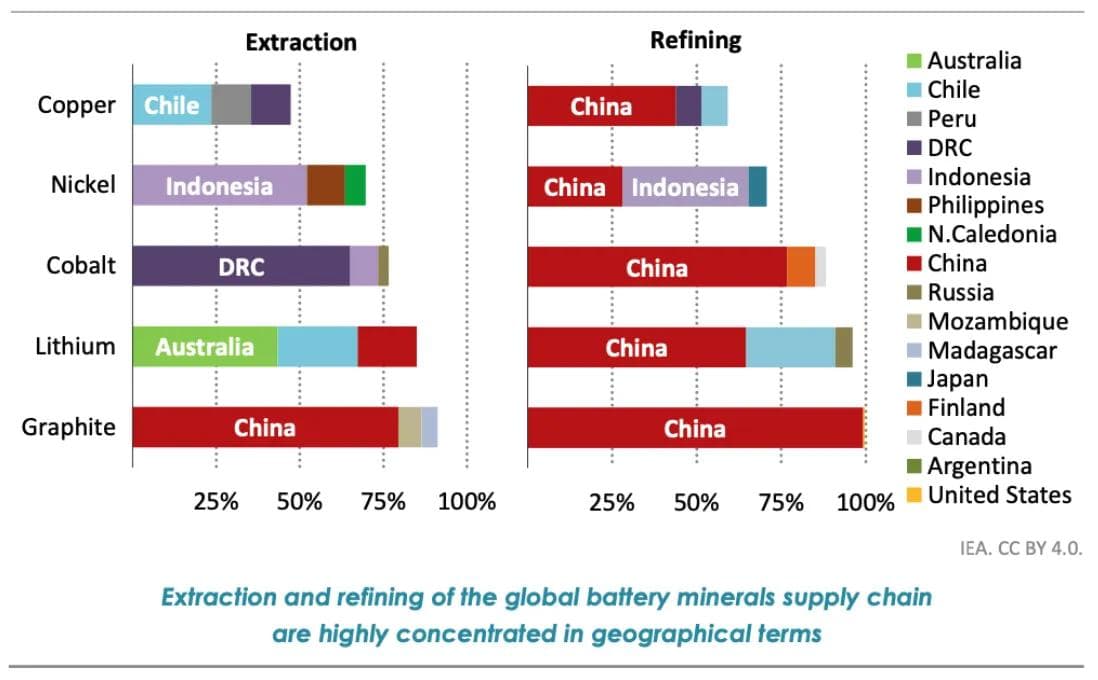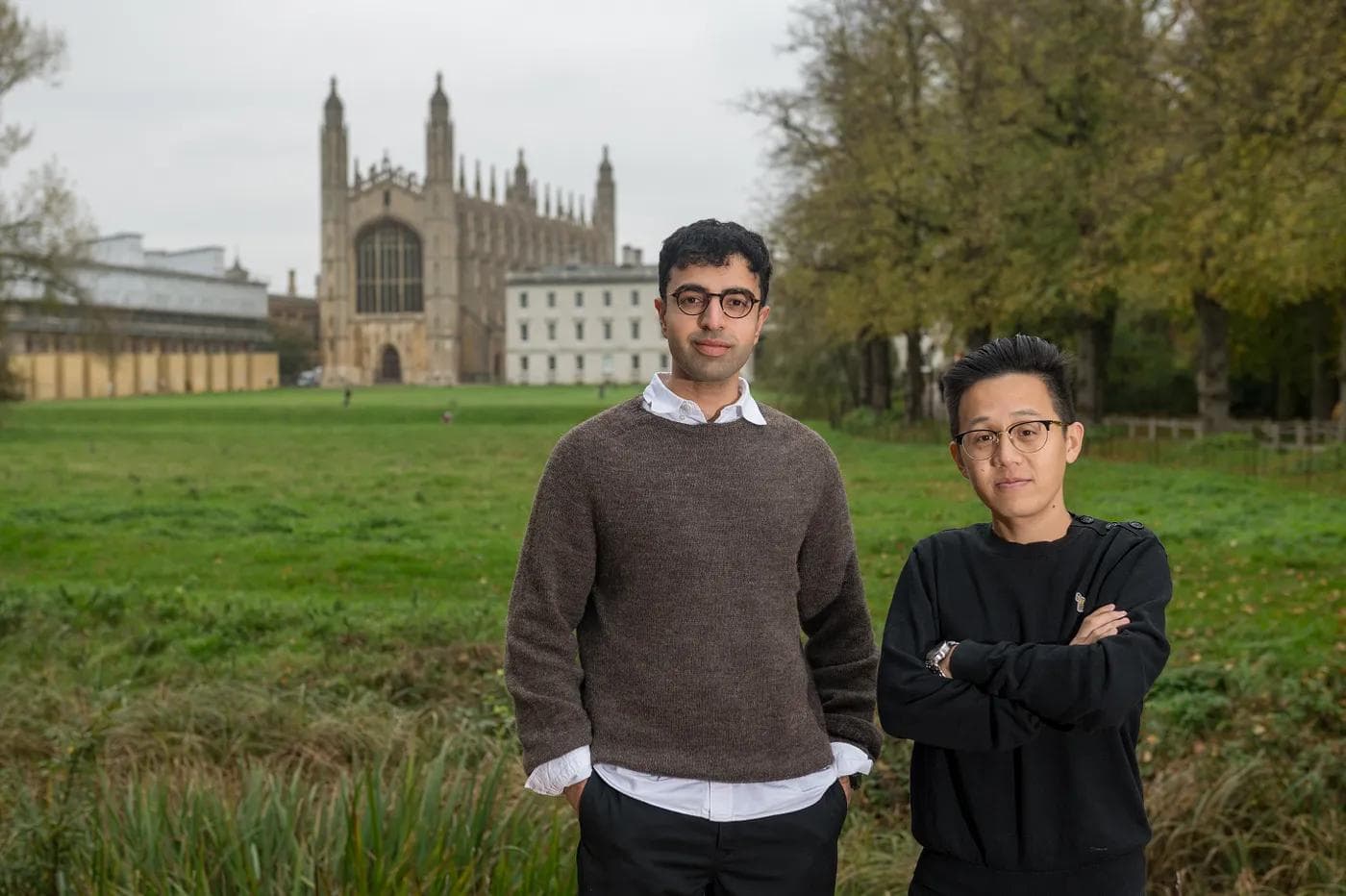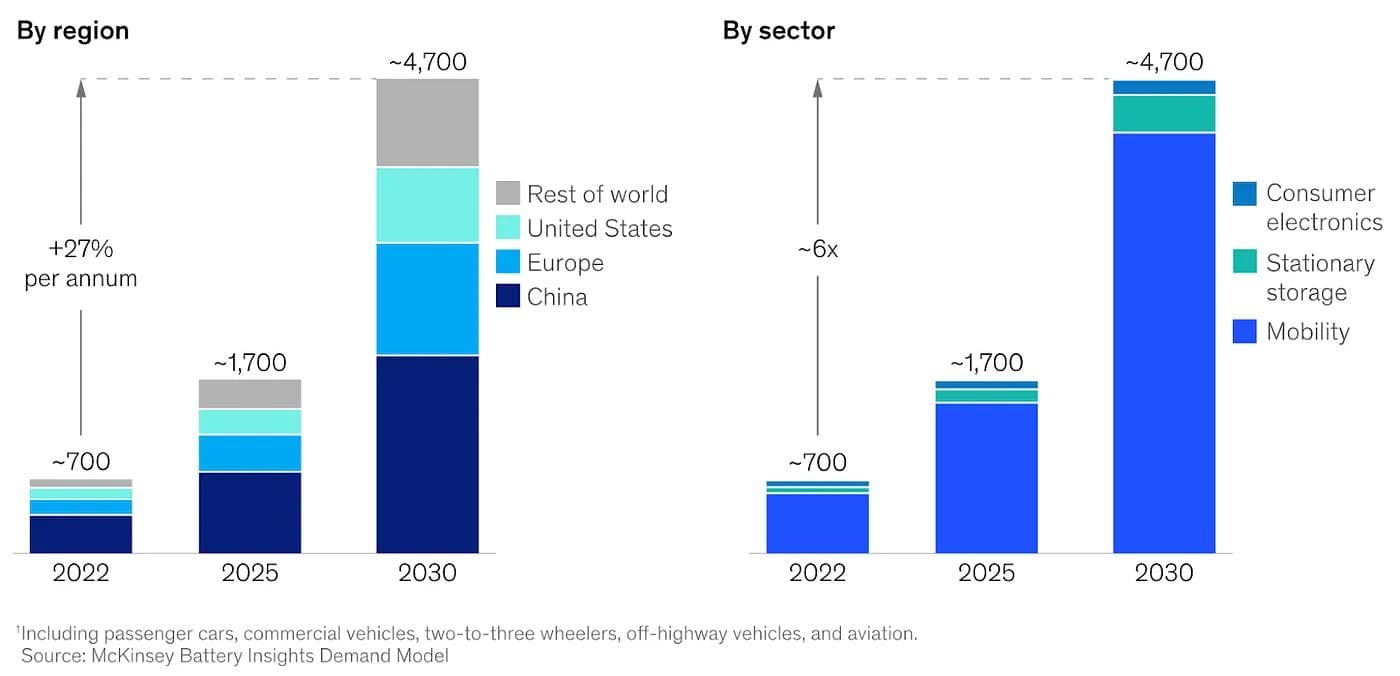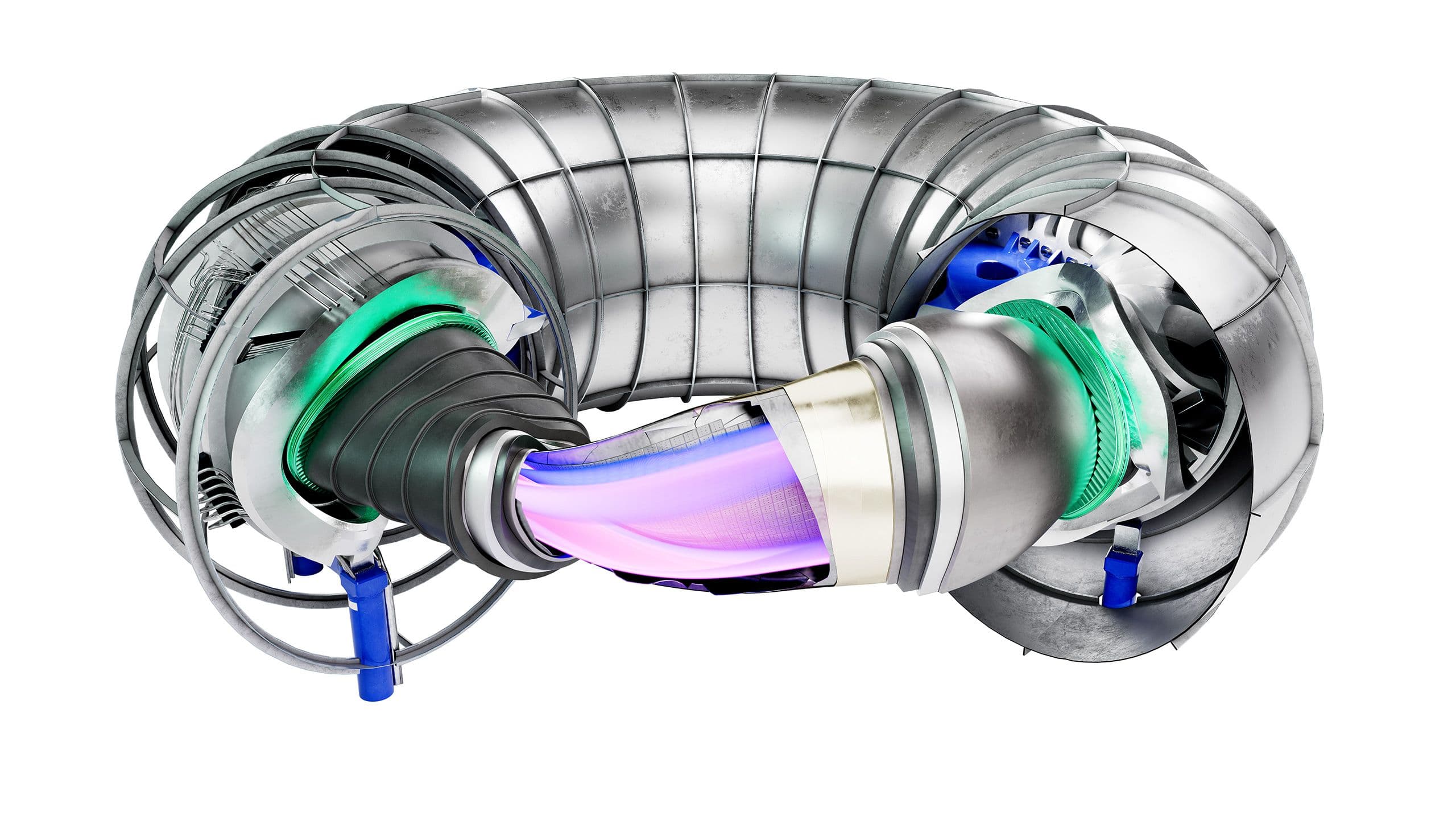Why we invested in Molyon
by Carina NamihEuropean battery tech might, superficially, seem like some of the least fertile territory you could spend time on as an investor right now. It’s ground that’s suffered from a historic investment drought compared to China and the US — who continue to dominate in both production and innovation — while the struggles of recent well-funded companies trying to scale have blighted investor optimism.
The fact is, we have long lost the race in lithium-ion battery technology, where China dominates with 80%+ market share. China’s early and aggressive investment over decades has created unparalleled economies of scale in mining, refining, and production. This has driven down costs to levels that no Western competitor can match. The EV battery packs rolling off their assembly lines are industrial marvels — packing thousands of precisely engineered cells, each one a masterpiece of layered chemistry. The skills base and know-how has proven extremely tricky to replicate, even for the US with their IRA spending spree. Europe’s belated attempts to catch up — building gigafactories or forming partnerships for material extraction — only serve to highlight how entrenched China’s dominance has become.

But lithium-ion is stuck behind inherent limitations due to its chemistry; lithium-iron-phosphate (LFP) suffers from low energy density, and nickel-manganese-cobalt (NMC), while offering higher performance and where many Western battery companies hoped to find advantage, relies on expensive and critical supply chains of materials. And so after more than 30 years of incremental improvements, lithium-ion technology is hitting a wall. It’s nearing the theoretical limits of performance, leaving little room to deliver on the soaring demand for electrification forecast over the coming decades.
Green shoots
Rather than pouring resources into competing in an arena where the rules have already been set by others, Europe and the UK must shift focus from scaling yesterday’s technology to leading the charge in next-generation batteries — especially in lithium-sulfur where we actually have an advantage.
That’s where Molyon comes in. With its new cathode breakthrough in lithium-sulfur, this Cambridge University spinout addresses many of lithium-ion’s fundamental flaws with it’s new battery chemistry; offering higher energy densities, reliable supply chains, and greater sustainability by using abundant and low-cost sulfur.
The UK is uniquely positioned to lead in lithium-sulfur technology. We are already one of the world-leading innovators in this emerging field, with the top labs and researchers based here. The UK also has the talent base and scar tissue from earlier failed attempts to commercialize this technology — as is so often the case with technological progress, the lessons learnt from these failures will feed the second wave.
This is a technology that doesn’t just match lithium-ion — it redefines the game, allowing the UK to leap-frog incumbent nations rather than scramble to compete.
Why Molyon
Molyon is early in its journey, but it’s shown a number of signs that it can lead the lithium-sulfur space as it scales.
Already, its cathode technology in lithium-sulfur batteries can deliver twice the energy density per weight of today’s lithium-ion — meaning they can deliver double the range compared to today’s solutions. This far outcompetes other battery companies and competitors working on lithium-sulfur. Molyon has shown that it can solve one of the technology’s big limiting factors to date: producing batteries that don’t degrade quickly after a few charge-recharge cycles.
These technical breakthroughs are complemented by a rare founding team of Dr Ismail Sami, Dr Zhuangnan Li, Prof Manish Chhowalla, and Dr Sai Shivareddy with experience of successfully scaling up manufacturing and commercialisation of new technologies.

A big opportunity
Electric vehicle demand may have softened in the short term but demand for batteries is higher than ever, and electrification of our society has only just begun. The next 20 years will see batteries embedded in every aspect of modern life, driven by both automation and sustainability. We are in the early stages of an AI-driven robotics revolution and we at Plural have made several investments in the space, from delivery to manufacturing to bricklaying robots.

Molyon offers a new path for the UK to establish itself as a leader in the global battery landscape, drive a wave of industrial growth, and secure our energy independence. This is exactly the kind of ambitious and consequential mission that we started Plural for and we are delighted to be backing the team.


